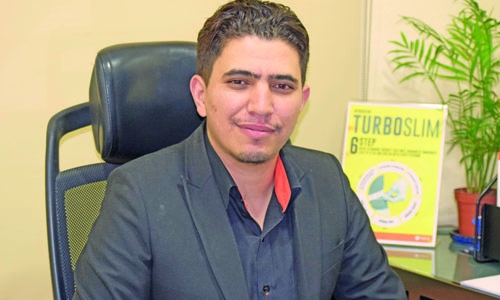How to eat healthy during holy month of Ramadan
Manama : Ramadan, the holy month of fasting and sacrifice, is observed by Muslims all around the world. The festival brings together families and friends. They pray, eat, drink and enjoy their time together. People normally don’t care much about what they are eating when they are in such a celebration mood but there are wrong notions about food consumption.
“During our fasting, our BMR (Basal Metabolic Rate) slows down and so eating less than normal is sufficient for the body to maintain a healthy body weight,” says Dr. Elsayed Ali, a dietician at VLCC.
“At Iftar the body requires an immediate source of energy in the form of glucose for its living cells, particularly the brain and nerve cells. Dates and juices are good sugar sources and it’s highly recommended to initiate your Iftar meal with dates and juices,” says Dr. Elsayed.
Breaking your fast should be gradual. You should begin with water, small portion of warm appetizer like soups, salads and yogurts or a small cup of fresh juice and even few dates are recommended. Dates are very nutritious as they contain magnesium, potassium and fibre
“We should follow a balanced diet even when we are fasting. intaking of more complex carbohydrates like oats, beans, lentils, whole grain foods etc. More at Suhour as they take more time to break down and digest, thus making you feel less hunger throughout the day. Protein rich foods like lean meats, fish, eggs, milk, nuts and seeds can also help to stabilize blood sugar level, which in turn can help curb craving,” says Dr. Elsayed
“You should see that you avoid fried and spicy foods as they may heartburn and indigestion. They also make you feel thirsty during your fast. Instead of eating sugar dipped sweets learn to take a healthier alternative like eating fresh fruits and nuts or you can replace your regular sugar with natural sweeteners like stevia, a sugar extracted from a plant species stevia. Over consumption of caffeine should also be avoided. Caffeine containing drinks act as diuretics, which will makes you to urinate more taking with it the valuable mineral salts that your body would need during the day.”says Dr. Elsayed.
Four to five days of exercise in a week is also adviced to maintain health during Ramadan.
Having at least 10 glasses of water between iftar and sleep avoids dehydration during fasting and maintain the body’s water balance and having 2 to 3 glasses during Suhour is also important.
Suhour is believed to be very important as they are seen equal to our breakfast. It provides the body with energy and nutrients required for doing your daily routines. Fasting without suhour leads to low blood pressure, low blood sugar, headaches and muscular pain and we should avoid going to bed right after eating.
“You should always consult a doctor before taking your fast, especially if you are a person suffering from kidney problems as it may lead to further complications,” says Dr. Elsayed.
Being the holy month people should all clean their inner selves and prepare the mind and soul for a new beginning.
Related Posts

